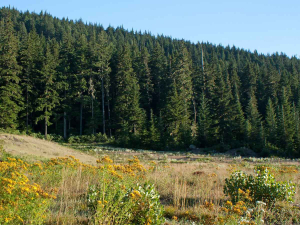Editorial: RMA reforms uproar
OPINION: The euphoria over the Government’s two new bills to replace the broken Resource Management Act is over.
 New regulations surrounding forestry will give councils more power to decide where new commercial forests are located.
New regulations surrounding forestry will give councils more power to decide where new commercial forests are located.
Federated Farmers forestry spokesperson Toby Williams says that changes to forestry rules announced yesterday will put power back into the hands of local communities.
Environment Minister David Parker, in announcing the policy, claimed the new national standards will give local councils more power to decide where new commercial forests are located.
Williams says the new rules will give local councils more say over what is planted and where it’s planted.
“We’ve seen in Gisborne and Hawke’s Bay the kind of damage that can be caused when forestry slash is mismanaged – it was totally devastating for our communities and we’re still recovering,” he says.
The standards create a requirement to remove slash from erosion-prone land, and the environmental effects of permanent pine forests would need to be managed in the same way as plantation forests.
"Federated Farmers have been pushing really hard for this for some time now, so it’s great to finally see some action that will make a difference for our rural communities,” Williams says.
"Farmers have been incredibly frustrated with the amount of productive farmland that’s being lost to blanket pine tree plantations."
However, the Forest Owners Association (FOA) says it is concerned that local government does not have the resources to manage the forestry slash issue.
FOA president Grant Dodson says the announcement comes “with a pre-election rush”.
“We are told the new rules will be in effect within a month, which is way too quick to develop the risk assessments and management tools which landowners and councils will have to comply with,” he says.
Dodson says foresters are aware that forestry slash can be an issue on erosion-prone land and land which is hit with storms of unprecedented severity driven by climate change.
“We are putting a lot of work into ways which together can reduce the risk of post-harvest wood going down rivers, from different species of tree to using as much waste as we can for biofuels,” he says.
“But there will be debris left after harvest and we need to get as much as we can secure or remove it. That removal has to be practical and safe,” he says. “Councils don’t have the health and safety operational knowledge and capacity to make that assessment.”
Former Fonterra executive Alex Turnbull has been appointed CEO to lead all five Yili Oceania Business Division companies in New Zealand.
Fonterra executive René Dedoncker is leaving the co-operative later this year to lead Australian agribusiness Elders.
Alliance Group and the Southland Stags rugby team have joined forces in a partnership that will see the the meat co-operative's farmgate brand feature on players' team kits and replica jerseys.
Fonterra's plan to expand its organic programme to the South Island is being well received by farmers, the co-op says.
Voting has started for the renewal of DairyNZ's milksolids levy.
The most successful catchment groups in NZ are those that have 'a source to sea' approach.